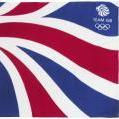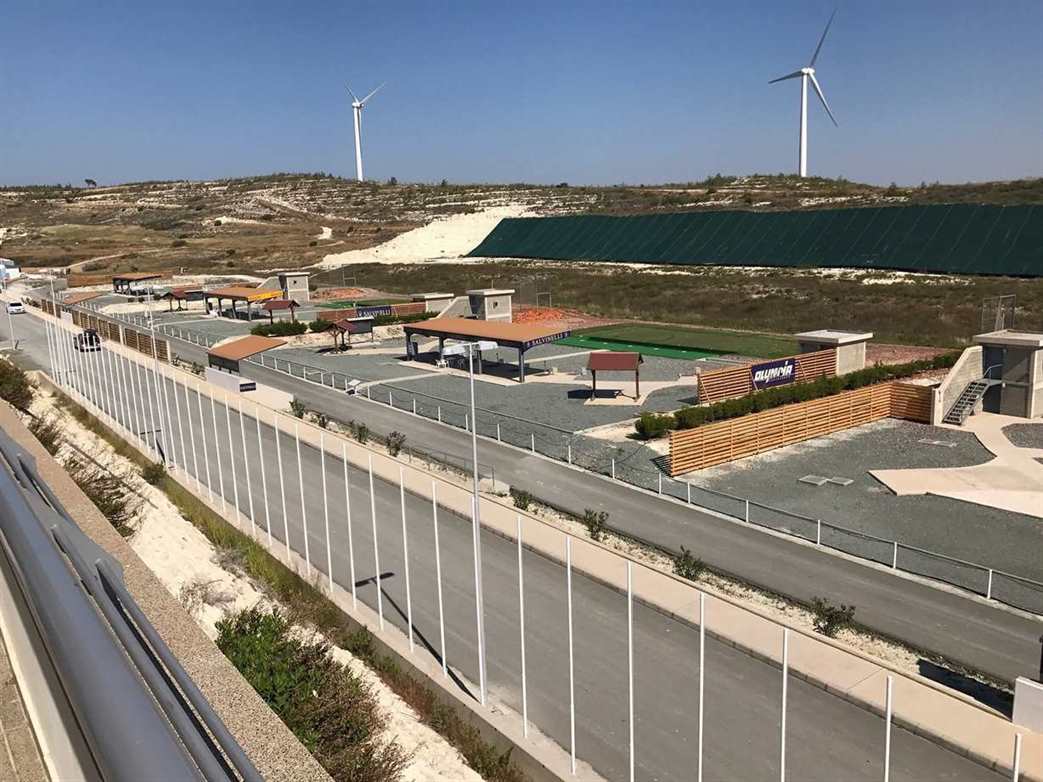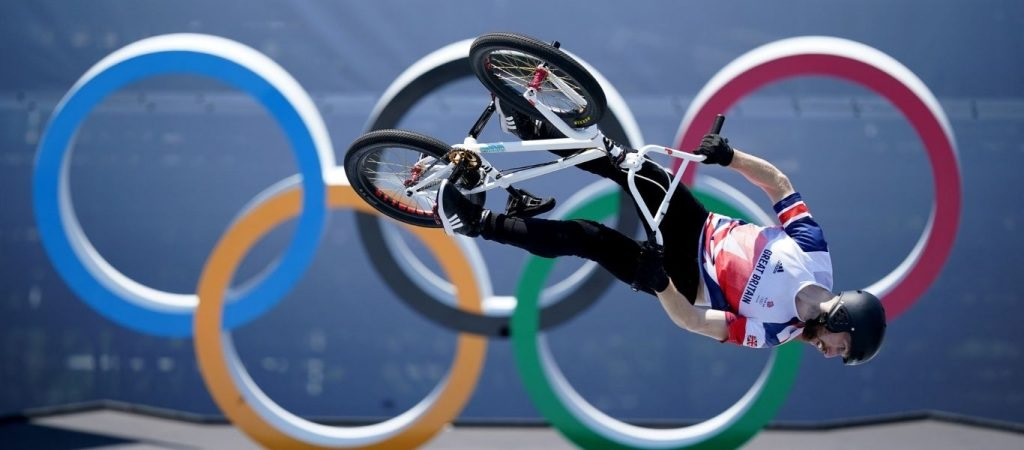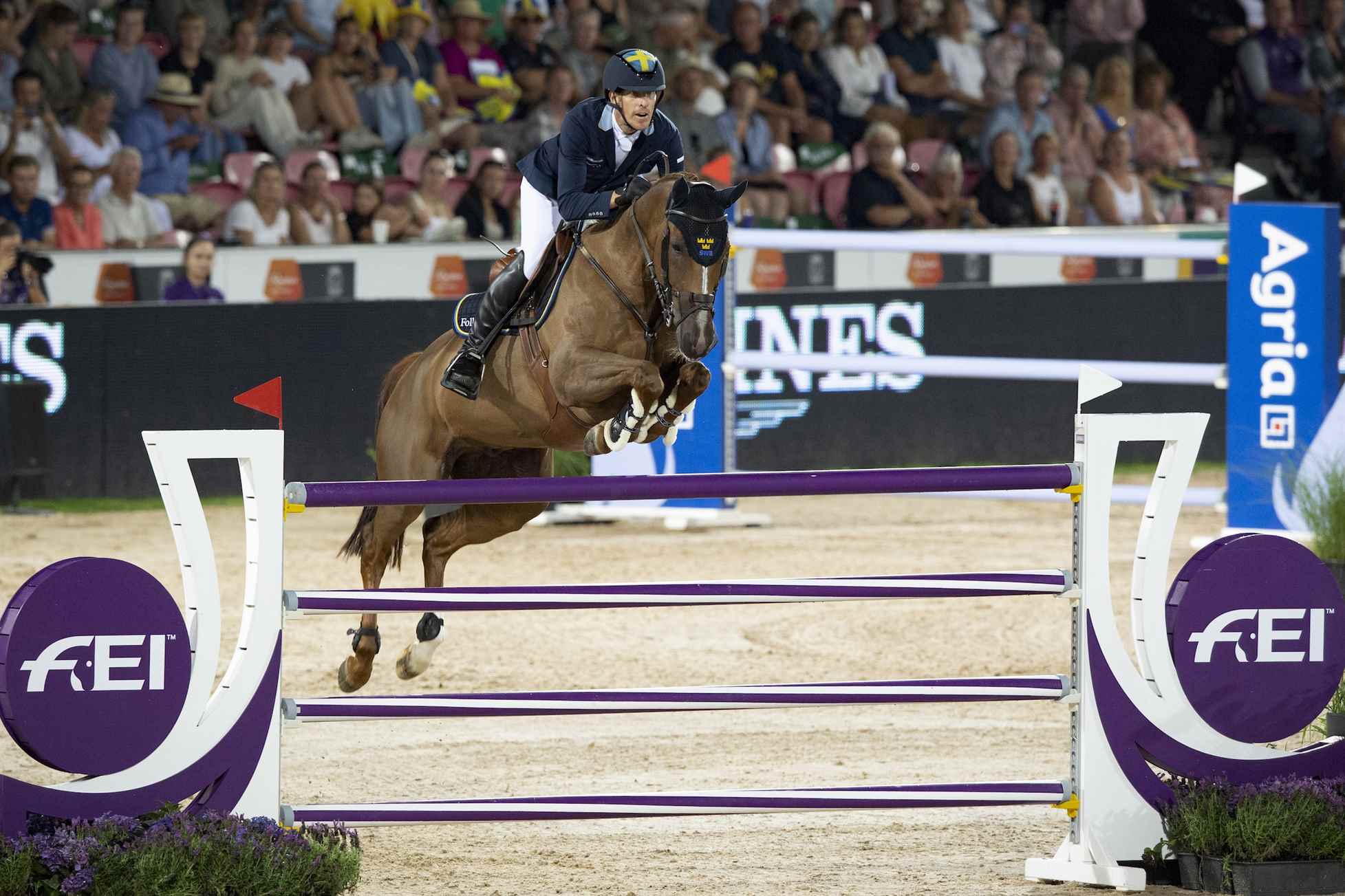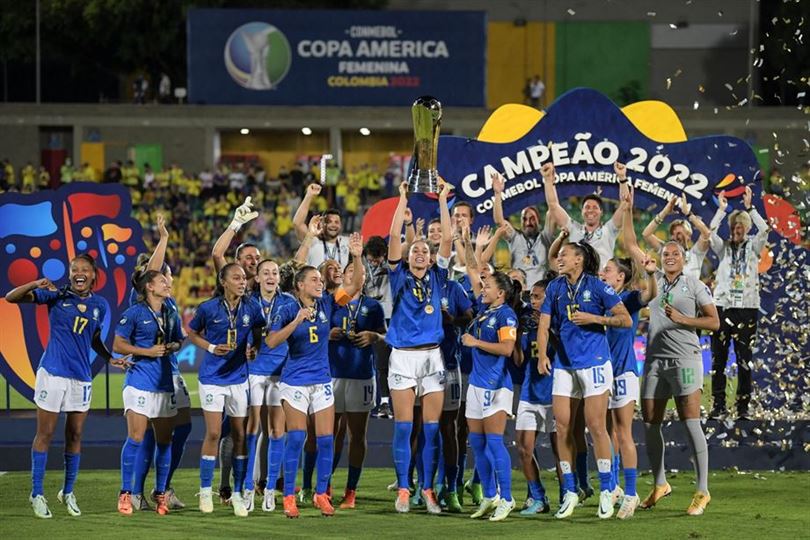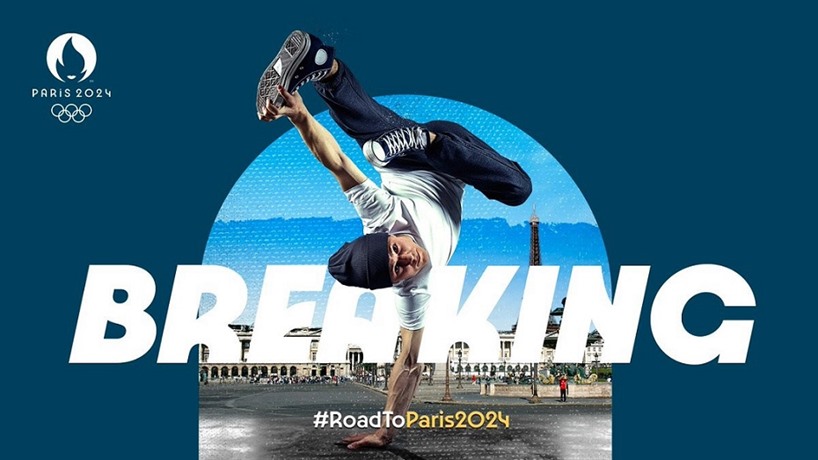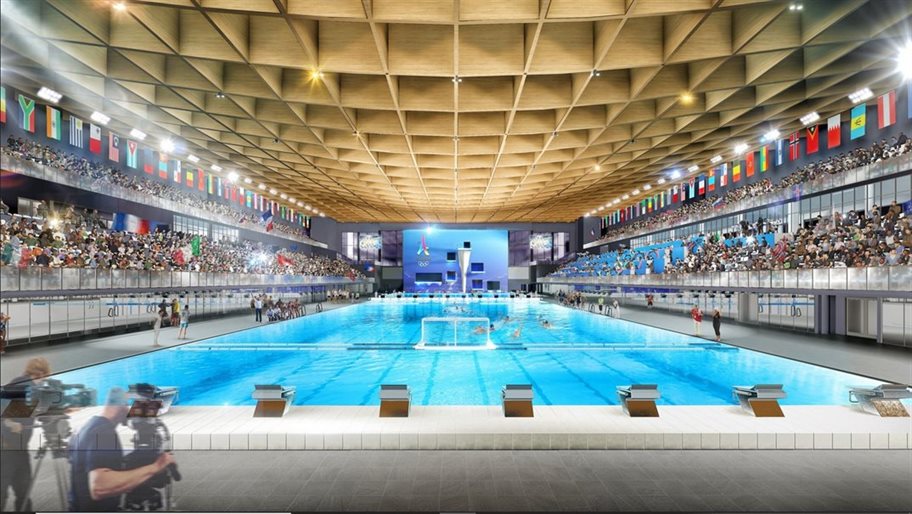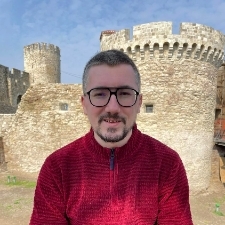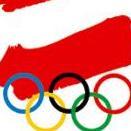A total of one hundred athletes entered the qualification stage, although thirteen of these were not eligible to reach the final and in it for ranking points only. With five rounds of 25 targets each, the top eight would qualify. Tokyo 2020 champion Liptak lead with 123 hits, with Sweden's Rickard Levin-Andersson second with 122. Third would be decided by shootoff as Great Britain's Nathan Hales and Cyprus's Andreas Makri were tied for 121, while fifth would also be decided by shoot-off to decide between France's Clement Borgue, GB's Matthew John Coward-Holley, and Portugal's Armelim Felipe Rodrigues, who were all on 120 points. Most importantly, the eighth and final spot would also be decided by shoot-off, as Croatians Anton Glasnovic and Francesco Ravalico were tied on 119 points with Teemu Antero Ruutana of Finland and Erik Varga of Slovakia. The Czech Republic's Vladimir Stepan also got 119 points but was ineligible to make the final as a 'ranking points only' (RPO) athlete.
Makri got the better of Hales in the shootoff to come third, while in the shoot-off for fifth Rodrigues with six got ahead of Coward-Holley with five and Borgue with none. Glasnovic hit three targets to beat out Ruutana on two and Ravalico and Varga on one to make the next round. Here, there would be two ranking matches of four athletes each, with the top two making the medal match. The first match was made up of Bourgue, Liptak, Makri, and Rodrigues; there would be twenty-five shots, although the athlete in last after fifteen would be eliminated. That happened to be Makri with ten, while it was a tight race in front: Liptak on fourteen, Rodrigues on thirteen, and Bourgue on twelve. But Bourgue missed his next three shots and could only post a total of nineteen, while Liptak (22) and Rodrigues (21) advanced to the final. In the other match, comprised of Coward-Holley, Glasnovic, Hales, and Levin-Andersson; after fifteen it was Glasnovic that was eliminated with eleven, with Hales in front with thirteen and both Coward-Holley and Levin-Andersson on twelve. But Levin-Andersson recovered, only missing one of his final ten shots to post a score of 21, tying with Hales, meaning Olympic bronze medallist Coward-Holley would not advance.
In the medal match, there would be thirty-five shots, with last place eliminated after fifteen and again after twenty-five. After fifteen shots Rodrigues was eliminated with ten hits; both Levin-Andersson and Hales had twelve, but something special was in the works as Liptak had all fifteen. With the Czech seemingly uncatchable, the next ten shots would be crucial to decide who got the Paris spot. Both of them hit their next five perfectly, but both missed one shot. Tied for 21 points, they were separated by their score in the Ranking Match. However, as this was also equal, this meant they were separated by their score in the qualification match, and Levin-Andersson survived: a true reflection that every shot matters. But the Swede would have to settle for silver: while he was battling with Hales, Liptak had extended his perfect run: with five shots to go the Czech led 30-25. That meant he just needed to get the next shot to guarantee it and he did, a "golden hit" stopping the contest early and winning gold with a perfect 31 out of 31 in the final. The quotas then went to the Czech Republic and Sweden.
On the women's side, it was a somewhat less crowded field, with forty-five athletes, three of whom were RPO. Italy's Silvana Stanco got 119 hits in qualifying, with Portugal's Maria Ines Coelho de Barros and Italy's Giulia Grassia tied for 118. France's Carole Cormenier, Lucy Charlotte Hall of Great Britain, and Jessica Rossi of Italy were tied for fourth with 117 points, while two Spaniards: Fatima Galvez and Mar Molne Magrina were tied for seventh with 116. Grassia hit six targets in the shootoff ahead of Coelho de Barros with five to confirm an Italian 1-2, while Hall won her shoot-off for fourth with three targets ahead of Cormenier on two and Rossi on one. Galvez hit one target to beat Molne Magrina on none. This meant that both European medallists in Tokyo 2020: champion Zuzana Rehak Stefecekova of Slovakia (10th, 114) and bronze medallist Alessandra Perilli of San Marino (24th, 110) were casualties of the qualification stage.
The first ranking match was made up of Coelho de Barros, Cormenier, Galvez, and Stanco. After fifteen it was the French athlete who was eliminated, missing four of her first five shots and registering a total of nine. At this stage, Stanco was way in front with a perfect fifteen, with both Coelho de Barros and Galvez on eleven. But Coelho de Barros missed three of her next four and then her last three to register only fifteen in total, with Galvez coming second with twenty, safely behind Stanco who managed an impressive twenty-four. In the other ranking match, composed of Grassia, Hall, Molne Magrina and Rossi, Grassia was eliminated early with just nine of her first fifteen, while Molne Magrina was off in front with thirteen, just ahead of Hall and Rossi on twelve. However, the Spaniard faltered, hitting just four of the final ten shots to register a total of seventeen, with Rossi on twenty and Hall on nineteen qualifying.
Into the medal match then, and the quality was evident from the start. Galvez was eliminated after fifteen due to only hitting ten: Hall lead on fourteen with the Italians on thirteen each. But Rossi missed three of her next five and could only recover to twenty, with Hall on 21 and Stanco on 22. Hall hit the next ten perfectly to end on 31 and put the pressure on Stanco... but the Italian held her nerve to do the same and pip the Brit into second with 32. This meant that the women's quotas went to Italy and Great Britain.
So the first qualifiers for shooting have been decided: on the men's side, the Czech Republic and Sweden, and on the women's side, Italy and Great Britain. On 8 September, qualifying for the Men's and Women's Skeet will begin, the other events with Olympic quotas to be decided in Larnaca. The next chance for European (and indeed any) trap shooters will be at the 2022 World Championship (Shotgun) in Osijek, Croatia, which starts next month.
Patrick Green
Writer, Totallympics News
531
• 0


